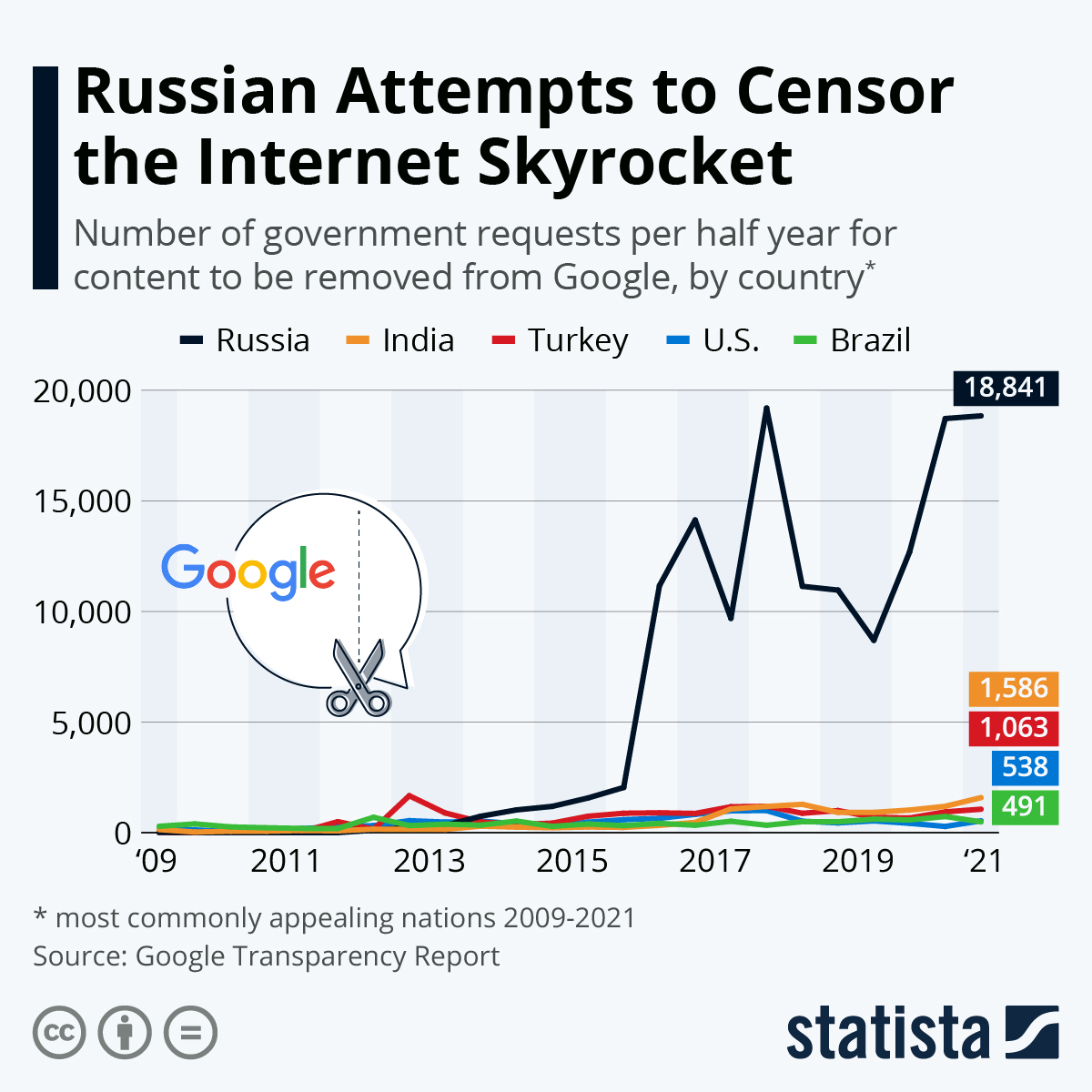Internet Control
Russian Attempts to Censor the Internet Skyrocket
The Russian government has in the last couple of years increased their attempts to censor the internet’s front page, Google. Since 2016, requests to remove content from Google Search, Google News, the Google app store and YouTube, among others, have soared, reaching highs in 2018 in the wake of stricter cyber laws being implemented and in 2020/2021 in the aftermath of the poisoning of opposition politician Alexey Navalny by Russian government operatives.
In the first half of 2021, the latest available from Google Transparency Reports, Russia filed close to 19,000 requests for more than 200,000 items to be removed. Depending on national law, governments can approach Google in regard to items that they want removed from the web. Reasons can include copyright infringements, defamation, fraud, hate speech or content deemed obscene. Yet, which specific offenses fall under these categories again vary depending on legislation in the respective country. A court order is another way in which governments can approach Google to ask for content to be taken off the web.
The Russian Information and Communications Authority has been filing the overwhelming majority of requests to Google from the country, showing the organized nature of Russia’s attempts to remove content from the internet. Most recently, 96 percent of requests from the Russian government body were heeded by Google.
Russia is by far the country with the most filings for Google content removal, but this actually shows that its government has not yet gained a full grasp on internet censorship. Regimes that already restrict the internet much more rigidly, for example China and Iran, do not file many Google removal requests as they have centralized internet control mechanisms in their own countries. In China, one crucial mechanism is often called the Great Firewall, but countries like Iran or North Korea also have so-called internet gateways or chokepoints that bundle all internet traffic coming in and going out of the country.
Russia, on the other hand, has been described as a place with a decentralized internet infrastructure, sharing many connections with neighboring nations, making it harder to assert control. In a 2018 study, the Russian internet was identified as having less chokepoint potential than that of the U.S., Germany or the UK. A reason for this might be the country’s earlier adoption of the internet compared to other restrictive nations, like China, India or Egypt, which built their infrastructures with censorship of the web 2.0 already in mind.
Nevertheless, Russia is progressing down a path toward heightened internet censorship. In 2019, another set of far-reaching cyber legislation was passed. The so-called sovereign internet laws aim to centralize Russian networks as well as implement the technology of Deep Packet Inspection, which allows even encrypted messages to be intercepted based on their sender and recipient information. Finally, the country has been planning to launch its own national Domain Name System, which is a directory for computers to find websites. It would enable users to still find Russian domain names even if they had been excluded from the centralized global DNS. This move has been demanded by Ukraine after the Russian invasion of the country but was denied by international coordinating body ICANN.

Description
This chart shows the number of government requests per half year for content to be removed from Google, by country.
Related Infographics
Any more questions?
Get in touch with us quickly and easily.
We are happy to help!
Statista Content & Design
Need infographics, animated videos, presentations, data research or social media charts?